Credit Repayment

How can I manage my student loan repayment after graduation ?
## Summary of Managing Student Loan Repayment After Graduation After graduation, managing student loan repayment can be a significant challenge. However, by following these steps, you can effectively manage your loans and avoid unnecessary fees or damage to your credit score: 1. **Understand Your Loan Terms**: Before starting any repayment plan, it's crucial to understand the terms of your student loans, including interest rates, monthly payments, and grace periods. 2. **Create a Budget**: A budget helps prioritize expenses and determine how much money can be allocated towards student loan repayment each month. Include all necessary expenses in your budget. 3. **Make Payments On Time**: Late payments can lead to fees and negatively impact your credit score. Set up automatic payments or make manual payments on time to avoid penalties. 4. **Consider Consolidation or Refinancing**: If you have multiple loans with different terms, consolidating them into one payment or refinancing at a lower rate may simplify repayment and save money. 5. **Explore Repayment Options**: Federal student loans offer various repayment plans, such as income-driven plans that adjust your payments based on your income and family size. Discuss the best plan with your loan servicer. 6. **Seek Help if Needed**: If struggling to make payments, don't hesitate to reach out for assistance. Many loan servicers offer forbearance or deferment options, and there are also government programs that can provide support for student loan repayment.

How do I manage debt effectively and pay it off quickly ?
Managing debt effectively and paying it off quickly requires a combination of discipline, strategy, and sometimes professional advice. Here are some steps you can take to get started: ### Assess Your Debt Situation - **Understand Your Debts**: List all your debts and identify high-interest debts. - **Determine Your Budget**: Calculate your monthly income and evaluate your expenses. ### Create a Debt Repayment Plan - **Choose a Repayment Method**: Avalanche or Snowball method. - **Make a Budget and Stick to It**: Allocate more funds to debt repayment and adjust as needed. - **Consider Refinancing Options**: Consolidate debts or negotiate with creditors. ### Implement Additional Strategies - **Increase Your Income**: Take on additional work or sell unwanted items. - **Reduce Your Expenses**: Cut out luxury spending and shop smarter. - **Improve Your Credit Score**: Pay on time and monitor your credit report. ### Seek Professional Advice if Needed - **Consult a Financial Advisor**: Personalized advice and debt management plans. - **Consider Debt Counseling**: Nonprofit credit counseling and beware of scams. Consistency and perseverance are key in paying off debt quickly.
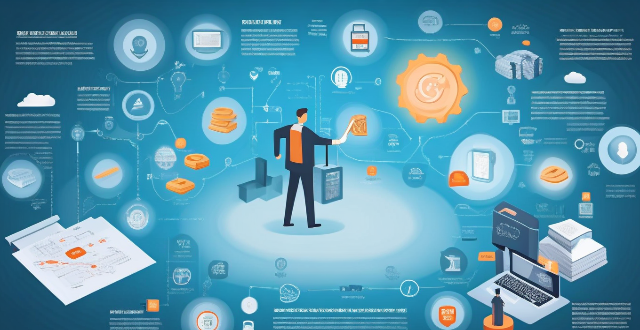
What is credit management ?
Credit management is the process of managing and controlling the use of credit by individuals or businesses. It involves evaluating borrowers' creditworthiness, determining the amount of credit to extend, monitoring loan repayment, and taking action for late payments. Key components include credit analysis, evaluation, loan monitoring, collections management, risk management, and customer relationship management. Effective credit management benefits include reduced default risk, improved cash flow, increased customer satisfaction, and enhanced reputation.

How do student loans impact credit scores ?
Student loans can significantly impact credit scores, positively throughStudent loans can significantly impact credit scores, positively through diversified credit mix, and Best practices for managing student loans include making payments on time, keeping balances low, and exploring forgiveness or repayment options to protect and enhance financial standing.

How does credit management work in a bank ?
Credit management is a crucial function of banks that involves assessing and managing the risks associated with lending money to individuals and businesses. The process includes evaluating borrowers' creditworthiness, using credit scoring models to determine risk, making loan decisions, servicing and monitoring loans, and managing credit risk through diversification and risk management strategies.
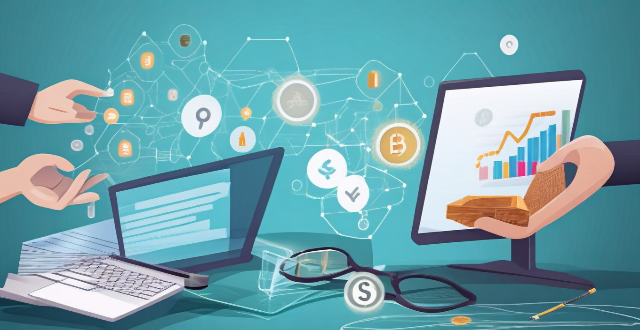
What is the difference between credit management and debt collection ?
Credit management and debt collection are two distinct processes that involve handling financial transactions between a business and its customers. While both are crucial for maintaining a healthy cash flow, they serve different purposes and require different approaches. Credit management refers to the process of managing the risks associated with extending credit to customers, while debt collection involves recovering outstanding debts from customers who have failed to make payments as agreed upon. Both processes are essential for maintaining a healthy cash flow and ensuring the financial stability of a business.

How can I improve my credit score and maintain good credit history ?
Maintaining a good credit score is vital for securing loans, mortgages, and even some jobs. To improve your credit score and maintain good credit history, consider the following tips: 1. Pay bills on time to avoid late payments that can significantly impact your credit score. 2. Avoid defaulting on loans by contacting the lender to discuss options if you're struggling to make payments. 3. Keep balances low and increase credit limits to lower your utilization rate. 4. Keep old accounts open and space out applications for new credit to maintain a healthy length of credit history. 5. Diversify your types of accounts to show that you can handle different types of credit responsibly. 6. Limit hard inquiries and apply for credit only when necessary. 7. Check your credit report regularly to ensure there are no errors or fraudulent activity dragging down your score. 8. Use credit wisely and monitor your credit score to keep an eye on progress. 9. Educate yourself on how FICO scores work and the factors that influence them to make more informed financial decisions. By following these guidelines, you can establish and maintain a strong credit profile that will serve you well in your financial life.

What happens if I can't repay my student loans ?
Student loans are a common way for individuals to finance their education. However, what happens if you are unable to repay your student loans? This article will explore the consequences of not being able to repay your student loans and provide some suggestions on how to avoid these consequences. If you fail to make payments on your student loans, you will eventually default on your loans. This means that you have failed to make payments for a certain period of time, usually 270 days. Once you default on your loans, the following consequences may occur: - Damage to Your Credit Score: Your credit score will be negatively impacted, which can affect your ability to obtain credit in the future. - Wage Garnishment: The government or your lender may take legal action against you to garnish your wages, which means taking a portion of your paycheck to cover the debt. - Tax Refund Offset: The government may also take a portion of your tax refund to cover the debt. - Loss of Eligibility for Future Financial Aid: You may lose eligibility for future financial aid, including grants and scholarships. In addition to the above consequences, the government or your lender may take legal action against you to recover the debt. This can result in additional fees and court costs, as well as potential damage to your reputation and career prospects. Failing to repay your student loans can have a negative impact on your future opportunities, including difficulty renting an apartment, getting hired, or starting a business. To avoid the consequences of not repaying your student loans, consider the following suggestions: - Create a Budget: Create a budget that includes your monthly expenses and income, and prioritize paying off your student loans as soon as possible. - Explore Repayment Options: Talk to your lender about different repayment options that may be available to you, such as income-driven repayment plans or deferment/forbearance options. - Seek Professional Help: If you are struggling with repayment, seek professional help from a financial advisor or credit counselor who can provide guidance on managing your debt. - Stay in Touch with Your Lender: Keep in touch with your lender and communicate any changes in your financial situation that may affect your ability to repay your loans. - Consider Consolidation or Refinancing: If you have multiple loans with different interest rates and terms, consider consolidating or refinancing them into one loan with a lower interest rate and more manageable repayment terms.

How do interest rates on student loans work ?
Interest rates on student loans are the percentage of the loan amount that borrowers must pay in addition to the principal balance. The interest rate is determined by the lender and can vary based on factors such as creditworthiness, type of loan, and repayment term. There are two main types of student loans: federal and private. Federal student loans have fixed interest rates that are set by Congress each year, while private student loans have variable or fixed interest rates that are determined by the lender. Interest on student loans begins to accrue as soon as the loan is disbursed, and there are several repayment options available for student loans. By choosing the right type of loan and repayment plan, you can minimize your interest costs and pay off your student loans more efficiently.

What role does credit scoring play in credit management ?
This article discusses the importance of credit scoring in credit management. It explains what credit scoring is, its role in risk assessment, fairness and objectivity, efficiency and accuracy, customization, and compliance with regulations. The article emphasizes that credit scoring is a crucial tool for lenders to evaluate borrowers' creditworthiness and make informed decisions about approving loans.

How do interest rates affect credit management strategies ?
Interest rates significantly influence credit management strategies by affecting the cost of borrowing, returns on savings, and serving as a tool for monetary policy. To mitigate their impact, individuals and businesses can diversify their portfolios, consider short-term loans, refinance debt, and maintain good credit history.

Can I get a mortgage with bad credit ?
Getting a mortgage with bad credit is possible but may be more challenging and come with less favorable loan terms. To increase your chances, check your credit score, work on improving it, shop around for lenders, consider alternative options like FHA or VA loans, and be prepared to make a larger down payment.

In what ways can bad credit management lead to financial difficulties for a company ?
Poor credit management can lead to cash flow issues, increased costs, damage to supplier relationships, negative impact on business reputation, and legal implications. To mitigate these risks, companies should establish clear credit policies, conduct regular credit checks, maintain open communication with customers, leverage technology for payment tracking, and consider third-party services or credit insurance.

How can companies use credit management to improve cash flow ?
Credit management is crucial for companies extending credit to customers. Strategies include implementing a credit policy, conducting credit checks, monitoring receivables, offering multiple payment options, incentivizing timely payments, using automated tools, and periodically reviewing and adjusting processes. These steps can help reduce bad debts and improve cash flow.

How can financial education help prevent debt ?
Financial education is crucial in preventing debt by empowering individuals with the knowledge and skills to make informed financial decisions. It covers understanding personal finance, smart borrowing practices, avoiding common pitfalls, and promoting healthy financial habits. By learning budgeting, saving, investing, credit score management, loan shopping, debt consolidation, and avoiding overspending, predatory lending, and credit card traps, individuals can reduce their risk of accumulating debt and enjoy greater financial stability and independence.

Can you explain the process of credit analysis in credit management ?
Credit analysis is a crucial process in credit management that involves evaluating the creditworthiness of a borrower or a counterparty. The process includes gathering information on personal data, financial data, and credit history, analyzing this information through credit score analysis, financial statement analysis, and industry analysis, and determining creditworthiness based on capacity to repay, collateral, and covenant analysis. Finally, a decision is made on whether to extend credit to the borrower or not.

How often do credit card rewards expire ?
This text provides an in-depth analysis of credit card rewards expiry. It explains the various types of rewards and their typical expiration timelines, including cashback rewards, travel points, and other benefits. The article also offers tips on how to maximize the value of these rewards before they expire, such as staying organized, planning ahead, redeeming early, exploring redemption options, and negotiating with your credit card issuer if necessary. Overall, it emphasizes the importance of understanding the terms and conditions of credit card rewards to make the most of them.
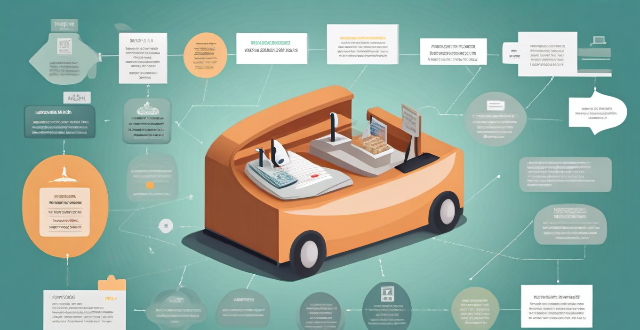
What is credit monitoring and why is it important in credit management ?
Credit monitoring is the process of tracking and analyzing a borrower's credit history, including payment behavior, outstanding debts, and changes in credit scores. It is important for early warning signals of potential default or delinquency, accurate risk assessment, fraud prevention, customer relationship management, and compliance with regulations. By continuously monitoring a borrower's credit history, lenders can update their risk assessments, prevent fraud, tailor their products and services to better meet their customers' requirements, and ensure they are meeting regulatory requirements.

How do banks manage credit risk ?
Banks manage credit risk through a variety of methods and strategies to ensure the stability of their operations and protect against potential losses. They identify and assess credit risk using credit scoring models, financial analysis, and credit reports. They mitigate credit risk through diversification, collateral and guarantees, and credit derivatives. Banks monitor and control credit risk by ongoing monitoring, loan loss reserves, and regulatory compliance. In case of credit risk events, banks recover through workout agreements, legal recourse, and communication with stakeholders. By employing these strategies, banks aim to minimize credit risk while still providing essential lending services to support economic growth and individual prosperity.

What are some examples of successful climate debt repayment programs ?
Climate debt repayment programs aim to address the disproportionate impact of climate change on vulnerable communities and countries. Successful programs include the Green Climate Fund, Global Environment Facility, World Bank's Climate Investment Funds, and African Development Bank's Africa Adaptation Initiative. These programs provide financial support and resources for adaptation, mitigation, and sustainable development projects in developing countries. Key features include funding for biodiversity conservation, land degradation prevention, private sector involvement, and disaster risk reduction.

How do I maximize my credit card rewards ?
Maximizing Credit Card Rewards: Tips for Earning More Credit card rewards can be a valuable way to save money and earn cash back, travel points, or other perks. To maximize your rewards, it's important to choose the right credit card, use it regularly, take advantage of bonus categories, and track your rewards. You should also combine rewards with other discounts, consider a card with an annual fee, avoid unnecessary fees, monitor your credit score, and don't overspend. By following these tips, you can make the most of your credit card rewards while using them responsibly.
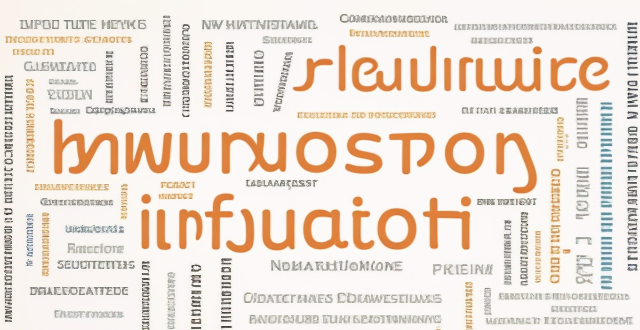
How does credit history influence insurance rates ?
The text discusses how credit history influences insurance rates. Insurers use credit history as a predictor of future claims and risk, with studies showing that individuals with poor credit histories are more likely to file claims and cost insurers more money than those with good credit histories. Several factors can affect insurance rates based on credit history, including payment history, amount owed, length of credit history, and types of credit used. Maintaining a strong credit history can potentially save money on insurance premiums and demonstrate financial responsibility to insurers.

How does technology impact credit management practices ?
Technology has revolutionized credit management practices by automating processes, enhancing data analysis capabilities, and streamlining communication channels. Automated credit scoring systems save time and reduce human error, while accounts receivable management software helps businesses track outstanding invoices and initiate collections actions if necessary. Technology also enables businesses to monitor changes in a borrower's creditworthiness in real-time, allowing them to make informed decisions about extending credit or adjusting terms. Enhanced data analysis tools like artificial intelligence and machine learning help businesses gain insights into customer behavior and make better-informed decisions about extending credit. Predictive analytics can identify potential risks, sentiment analysis gauges customer sentiment towards products or services, and fraud detection technology reduces the risk of financial losses due to credit card fraud or identity theft. Streamlined communication channels such as online portals, mobile apps, and chatbots powered by AI improve customer service and efficiency in credit management practices. Overall, technology has had a profound impact on credit management practices and will continue to do so as it evolves.

How can individuals participate in a carbon credit system ?
Carbon credit systems enable individuals to participate in reducing greenhouse gas emissions by buying, selling, or supporting carbon offsets. Individuals can offset their own carbon footprint by purchasing credits from verified projects, sell credits generated from their sustainable projects, or support the growth of carbon credit initiatives through advocacy and investment. Participation in these systems is a significant step towards combating climate change and fostering a more sustainable environment.

What are the common challenges faced in credit management ?
Credit management is a crucial aspect of any business, but it comes with several challenges. These include late payments, high-risk customers, inaccurate information, fraudulent activities, regulatory compliance, resource constraints, customer retention, technology adoption, global expansion, and data privacy. Addressing these challenges proactively and implementing effective strategies can improve credit management processes and minimize associated risks.
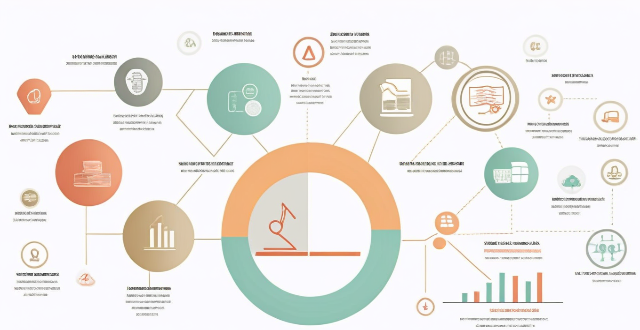
What is the role of credit rating agencies in bond investing ?
Credit rating agencies are pivotal in bond investing, offering independent assessments of issuers' creditworthiness. They conduct thorough analyses and assign ratings reflecting the likelihood of default, aiding investors in risk evaluation and portfolio diversification. These ratings contribute to market transparency, efficient price discovery, and enhanced liquidity. They also play a role in regulatory compliance for institutional investors and capital markets regulation. However, concerns about conflicts of interest and rating accuracy during crises highlight the need for improved methodologies and increased accountability.

How can small businesses improve their credit management ?
Credit management is an essential aspect of running a successful business. It involves managing the company's debt, ensuring timely payments to vendors and suppliers, and maintaining a good credit score. Here are some tips on how small businesses can improve their credit management: 1. Set up a system for tracking invoices and payments. 2. Negotiate better terms with vendors and suppliers. 3. Pay bills on time. 4. Monitor your credit score regularly. 5. Keep personal and business finances separate. 6. Seek professional advice when needed.
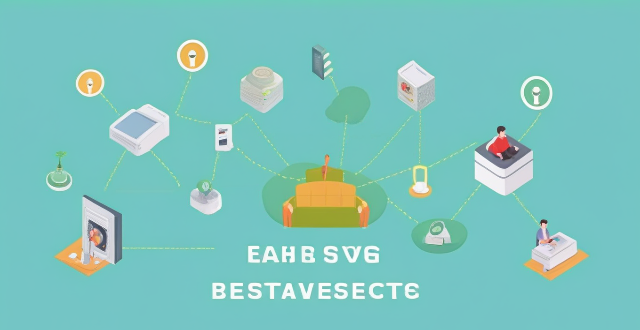
How do carbon credit systems impact developing countries ?
Carbon credit systems can have both positive and negative impacts on developing countries, including economic development, environmental benefits, technology transfer, market risks, social impacts, and environmental concerns. Policymakers and stakeholders must carefully consider these impacts when designing and implementing carbon credit projects in developing countries.

Can carbon credit systems effectively combat climate change ?
Carbon credit systems are a market-based approach to reducing greenhouse gas emissions by creating financial incentives for companies and individuals to reduce their carbon footprint. While these systems can effectively incentivize reduction of emissions, promote innovation, and support sustainable development, they also face challenges such as lack of regulation and standardization, inequality and access issues, and limited scope of impact. Carbon credit systems should be part of a broader strategy that includes government regulations, public education, and international cooperation to effectively combat climate change.

Can I use my credit card for currency exchange ?
Using a credit card for currency exchange is convenient but comes with potential fees and less favorable exchange rates. It involves dynamic currency conversion by your bank or credit card issuer, which may add a spread or margin to the rate. To use your credit card for currency exchange, ensure it's eligible for international use, notify your bank of travel plans, understand associated fees, choose to pay in local currency, and monitor transactions. While offering convenience and security, drawbacks include fees, potentially unfavorable rates, and the need to manage credit limits. Comparing cards based on fees and rewards can optimize benefits.